“Never let a good crisis go to waste”. This short and catchy dictum was articulated by Rahm Emanuel, former Obama White House chief of staff and mayor of Chicago at the time of the Global Financial Crisis some twelve years ago. But it can stand as a universal motto of socialism, both the revolutionary and the democratic varieties, since the time of the Paris Commune in 1871, if not earlier.
As the old saying goes, the state makes war and war makes the state. The left loves war – but only the really big ones, like world wars – because extraordinary times call for extraordinary measures, including the concentration of power in the hands of politicians and bureaucrats at the expense of everyone else. The same can be said about major economic upheavals, like the Great Depression or the GFC, where the state steps in to stabilise the economic system, and so it now seems major pandemics, which likewise turn the world upside down so that it falls into the hands of technocrats.
Lenin thought that the carnage and upheaval of the Great War would provide a prelude to the world revolution. As it happened, revolution only happened, and only then as a result of a lucky coup rather than a mass rising, in one of the most backward parts of Europe, a semi-Oriental country that Karl Marx disdained. But herein lies the secret of success: if the status quo is sufficiently destabilised by big events, even small groups of committed believers can ride the wave to achieving objectives they otherwise could only dream of. Not only are the average people more open to radical solutions but the forces of the status quo are too weak and too discredited to put up a good fight. Mussolini and his fascists were another beneficiary of the war’s messy legacy in a country that was both one of the winners and also one of the losers in the conflict.
But even in more developed and democratic countries of Europe, while not leading to the overthrow of the political and economic system, World War I had contributed to a significant increase in the size and the power of the state. Even more so World War II, where the war experience translated into post-war Keynesian-inspired social democratic welfare states, ironically nowhere more so than in the United Kingdom where the Tories won the war but the Labour won the peace.
In some ways, the mobilisation of the state to fight a total war was merely the continuation of the mobilisation to fight the Great Depression, an economic upheaval like none before, which helped bring national socialism to power in Germany and realigned the American politics for the next half a century around a New Deal consensus. The GFC did not leave as extensive a legacy, except perhaps in the right’s surrender on government spending, budget deficits and public debt. If you are no longer restricted by the existing revenue, there is really no limit how big the government can grow.
Over the last two decades, the left has been trying to use climate change as another crisis not be wasted. If the problem was CO2, bigger state and smaller market were always the answers if you listened to Bernie Sanders and AOC with their Green New Deal or to Extinction Rebellion or Greta Thunberg or any number of other high profile individuals and groups.
By and large, this has not worked because the threat of a hotter planet and more extreme weather has never been immediate enough, despite all the 10 and 12-year deadlines until a “point of no return” and all the overheated, panic-mongering rhetoric about the end of the world.
Enter stage left coronavirus. What opportunities have been missed or simply impossible to seize as a result of the GFC (because the economic crisis wasn’t in the end deep enough) or the “climate emergency” (because the threat was never urgent enough) are here to be seized during the pandemic, even more so if the pandemic (or the responses to) leads to a genuine global economic depression, perhaps worse than the one 90 years ago. No sane person wishes deadly pandemics on the world, but since it’s already here might as well act. The comfortably elite Economist calls what has already occurred around the world “the most dramatic extension of state power since the second world war.”
It has been noticeable to me, as I’m sure it has been to many others, how large sections of the left seem to be salivating at the prospect of complete and prolonged lock-downs and martial law-type situations. Such measures might possibly be necessary in the end to finally halt and contain the spread of the contagion (or, then again, they might not be), but the sheer rush towards them and enthusiasm by people, many of whom have spent the last five years decrying the Donald Trumps of the world as dictators-in-waiting, leads me to believe that for many progressive and radical people authoritarianism is like rape: the public fear of it often masks the secret fantasies about it.
It’s not a question of what, and not even of who’s in charge, even though they would prefer to be the ones at the helm, as long as it actually happens, because the state, being the left’s domain, will be the ultimate beneficiary and in time so will they. The left loves power, no matter how much they protest it’s all for the greater good. That’s why everyone wants to be a commissar and no one actually wants to be the proletarian.
But never mind coronavirus martial law; even if it were to last a few months, people need to be let out of their houses eventually and life has to return to some semblance of normality. What the left is more interested and more passionate about are the long-lasting consequences, the fruit of power shifts in the world upended by a bat virus. The current crisis presents an almost unparalleled opportunity to expand the scope of governments at the expense of the private sector and the peoples and institute far-reaching changes to just about every aspect of life.
Here’s the dour former British prime minister Gordon Brown:
Gordon Brown has urged world leaders to create a temporary form of global government to tackle the twin medical and economic crises caused by the Covid-19 pandemic.
The former Labour prime minister, who was at the centre of the international efforts to tackle the impact of the near-meltdown of the banks in 2008, said there was a need for a taskforce involving world leaders, health experts and the heads of the international organisations that would have executive powers to coordinate the response…
Brown said his proposed global taskforce would fight the crisis on two fronts. There would need to be a coordinated effort to find a vaccine, and to organise production, purchasing and prevent profiteering.
Many countries have announced economic packages in the past two weeks but Brown said a taskforce could: make sure the efforts of central banks were coordinated; take steps to prevent the record flight of capital from emerging market economies; and agree a joint approach to the use of government spending to boost growth.
Those who know anything about the state know that “government” and “temporary” should never be credibly used in the same sentence together. Like viruses, public programs, initiatives and structures mutate but almost never disappear.
Here’s the US Democrat Congressional leadership:
The latest example is the newly-introduced House version of the “Take Responsibility for Workers and Families Act,” intended to afford stimulus and stability in the face of the economic crisis fomented by COVID-19. The bill may provide some form of succor to the economy, but in the words of Majority Whip James Clyburn (D-SC), the crisis is also “a tremendous opportunity to restructure things to fit our vision.” In other words, coronavirus gives good cover to impose progressive requirements on stricken businesses and a society eager to see government simply act. And fast.
Hence the Democrat Corona stimulus was full of provisions such as requirements for carbon offsets by airlines (never mind airlines might not actually survive six months on the ground), more power to the unions, minimum wage impositions, suspending parts of immigration laws and fiddling with electoral laws to benefit the left.
Here’s Democrat Senator from Connecticut Chris Murphy:
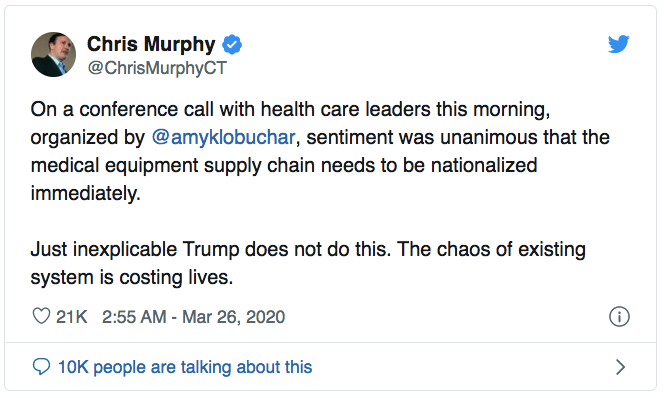 Here’s Naomi Klein (currently being dismembered on Twitter for her ignorance by Antony Green with great panache):
Here’s Naomi Klein (currently being dismembered on Twitter for her ignorance by Antony Green with great panache):
The most heartbreaking moment that I have ever witnessed in my political life was the lost opportunity in 2009 and 2010 when the Obama administration came to power. They did have control of Congress. They had the banks at their knees. They had the car companies at their knees. They had a blank check to write a stimulus program. They had the insurance companies, and they just lacked the courage to say, you know what, we’re going to change the kind of economy we have now. We’re going to get off fossil fuels right now. We are going to have a Green New Deal, a real Green New Deal. And we’re going to make sure that yeah, if we prop up the banks that they’ve got to loan money to the industries of the future, and we’re going to say to the car companies sure, we’ll bail you out but you’ve got to be making electric streetcars now or subway cars.
We could have done that then and there is another opportunity like that now. And so yes, we have to fight for those local solutions to keep people from getting evicted to get people the money that they need to re-open small businesses. We have to make sure that cities are not going to be even more gentrified, even more homogenous than they are right now. But we also need to think even bigger than that and think about how we learn from this crisis about how we maybe live a little slower, maybe consume less — those of us who are over consumers — and how we actually pivot to the kind of economy that is going to keep us safe in the long run.
How long can we put life on ice? Can, as Donald Trump and many others argue, the cure be more damaging than the disease, where you defeat the virus at the cost of destroying the economy? In the conflict between the interests of “the people” and “the business”, the left naturally sides with the people.
I’m not saying that the concern about the health and well being of the population is not genuine but that it is also politically quite convenient. For many on the left, certainly, the more radical wing of the ideology, the economy tanking as we save lives is not just a worthwhile trade-off, it’s actually a desired objective, because it puts the private sector on its knees and entirely at the mercy of the omnipotent state with its nearly limitless resources. So the longer-lasting and the more draconian the restrictions on normal life the better to these people.
If entire sectors of the economy such as transport (airlines, railways, shipping) go bust because they can’t move and/or there is no one/nothing to move, governments can snap them up at fire sale prices, effecting a cheap re-nationalisation of “vital” sectors of the economy.* Businesses and industries collapsing as a result of lockdowns can be rescued, bailed out or partly acquired using public funds with such strings attached that the state becomes in effect the most important shareholder with all the power to shape the internal and external workings of business.
The millions made unemployed by forced closures of retail and service industries or by bankruptcies in these and other sectors as a result of collapse in consumer spending effectively become, often for the first time ever, wards of the state, dependent on the government for income support and welfare. If feeling particularly generous, as it usually does, the state can turn into Santa Claus and create a substantial number of new public sector jobs (not unlike in the United States during the Great Depression), which weld millions of formerly private sector workers even more firmly to the life-saving and livelihood-giving government, vastly enlarging the constituency of fiefs. As far as the left is concerned, smashing the economy and the private sector is not a bug, it’s a feature.
We’re unlikely to end up with a socialist “paradise” any time soon, unless Coronavirus turns into a zombie apocalypse that causes mega casualties and wipes out the economy. But the longer various restrictions go on – and most in governments are talking about months into the second half of the year – the stronger and all-pervasive the state will emerge, consuming more resources, employing and providing for more people, crowding out business and community, regulating ever newer aspects of everyone’s life and work, finger in every pie.
The prospect of putting halt to most economic activity bar the “essential” and keeping everyone locked up at home for six months is something that only people with government jobs, whose wages get paid regularly no matter what, can seriously countenance. But it’s also the prospect many of them quite relish, some more openly than others, as it bestows on them the ultimate power over life and death, both metaphorical and literal.
The Coronavirus crisis is every statist’s and technocrat’s wet dream; a once in a generation opportunity to reshape the reality. Leftism, like SARS-CoV-2, is a virus, but with a potential to do much more lasting damage to our freedom and standard of life than a coronavirus pandemic ever could.
* This is already happening or being considered by governments of all political persuasions: the US, France, the UK, Spain, Italy and so on.
Arthur Chrenkoff blogs at The Daily Chrenk, where a version of this piece also appears.
Got something to add? Join the discussion and comment below.
Got something to add? Join the discussion and comment below.
Get 10 issues for just $10
Subscribe to The Spectator Australia today for the next 10 magazine issues, plus full online access, for just $10.

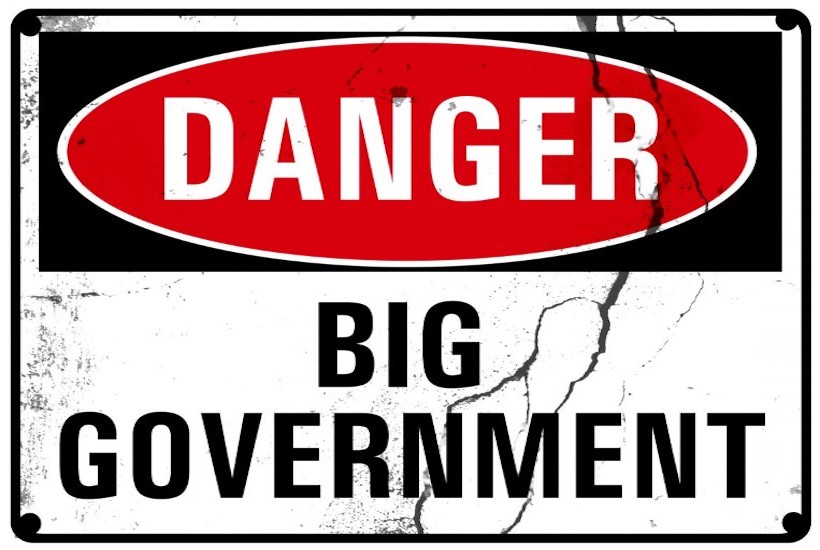
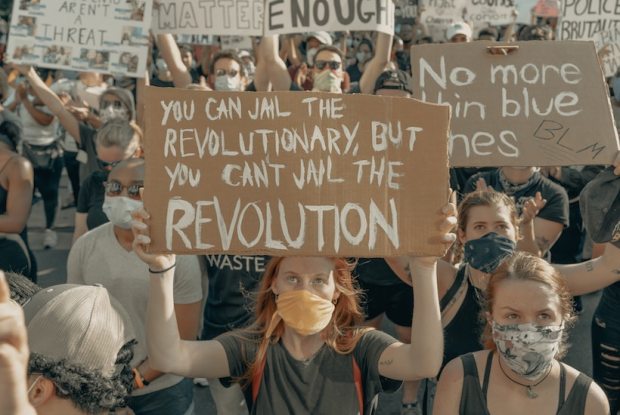
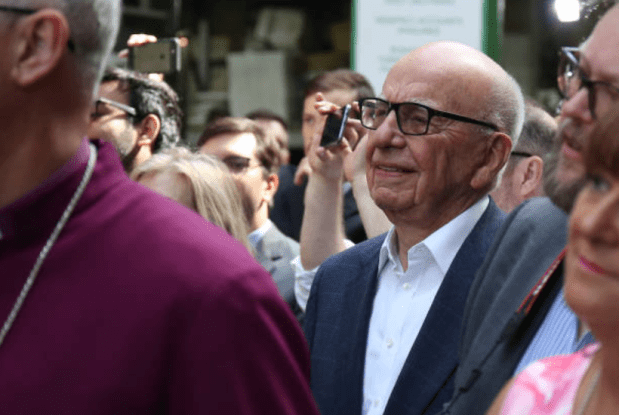
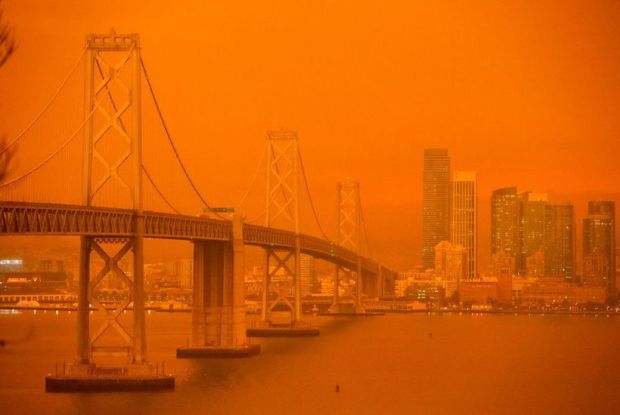
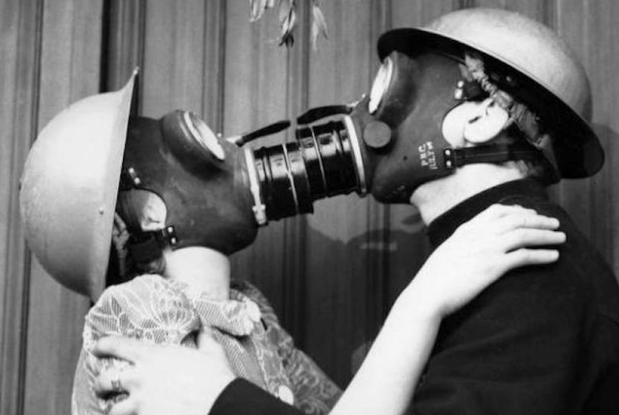




















Comments
Don't miss out
Join the conversation with other Spectator Australia readers. Subscribe to leave a comment.
SUBSCRIBEAlready a subscriber? Log in